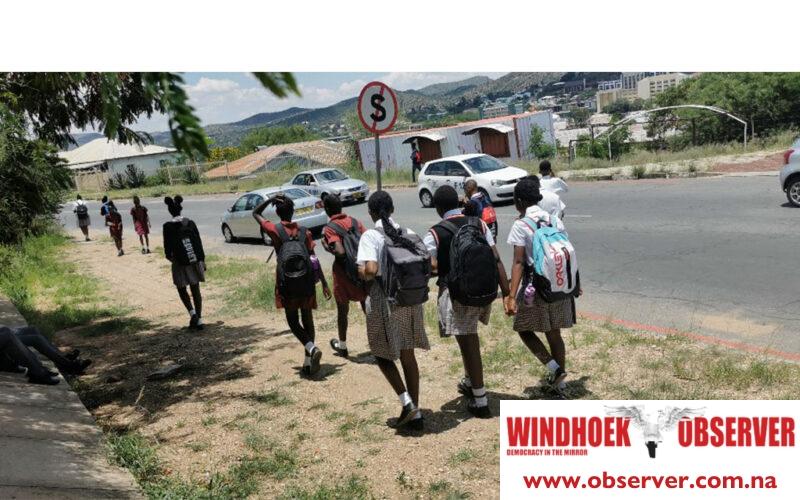Ester Mbathera
Six schools in the Khomas region have rejected Megameno Nghilongwa’s son, who will enter Grade 8 next year.
He is now facing a difficult decision to either send his child to a boarding school or relocate the family to another region.
“It is frustrating. We weren’t particularly selective when we applied. We applied to high schools that were either near our home or in the same direction as our place of employment. We received letters that we were unsuccessful. We applied to public schools out of town, and we were told that preference was given to children in those regions,” he said.
Nghilongwa is one of many parents panicking because schools haven’t released positive news.
The principal of Gardner Academy Private School, Fortune Mutemaringa, said that he has been urging parents to keep applying and appealing.
According to him, parents should apply to at least five schools nationwide, as this increases the child’s chances of being accepted.
“We encourage our students to participate in the extracurricular activities that are part of the curriculum, such as sports, debate, and choir, to expose them. This is so that when they have to choose a school, they have choices because some schools are academically inclined while others are sports inclined,” he said.
He suggested that local schools first accommodate children from the region before admitting outside students.
“Other regions should do the same,” he said.
However, he expressed hope for the approval of more Grade 8 and 9 secondary schools, which would broaden our options.
Mutemaringa applauded the government for making an effort to assist parents in placing learners who were not accepted at different schools.
“In the past, parents faced a tedious process, but now the government has established a proper timeline to ensure the delivery of all feedback. This has also allowed us to send the names of the children to the regional education office in time,” he said.
For children who are not academically inclined, Mutemaringa said they will benefit from schools that offer sports.
“That information is also relevant for parents to know so that they don’t just put children at any school. The government has also changed the rule that schools should not just accept the cream of the crop learners but also those who are struggling in the middle and those with special needs. And we applaud our regional education directorate for that,” he said.
The government has put in place a timeline to give feedback to learners who have not found a school. This task falls to the regional directorates, which place students while also giving parents time to accept or reject the placement offer.
Khomas regional education director, Paulus Nghikembua said the final placement meeting will still take place in October.
“The verification of learners admitted or not admitted took longer than expected. We call for patience and assure parents and the community that all learners will eventually be placed,” he said.
The Windhoek Observer contacted several schools in the region, and most of them indicated they were full.
Delta Secondary School Windhoek indicates that the school received 1 547 applications.
The school can only accommodate 216 learners, with 36 in each class.
These 216 spots must also include current Grade 8 learners who might fail.
However, Sunshine Private School indicated that they still had a few places available, as some parents who took forms did not return them.
The school also indicated that, although they currently have two classes with 20 learners each, they are willing to expand should there be a need to accommodate more.




